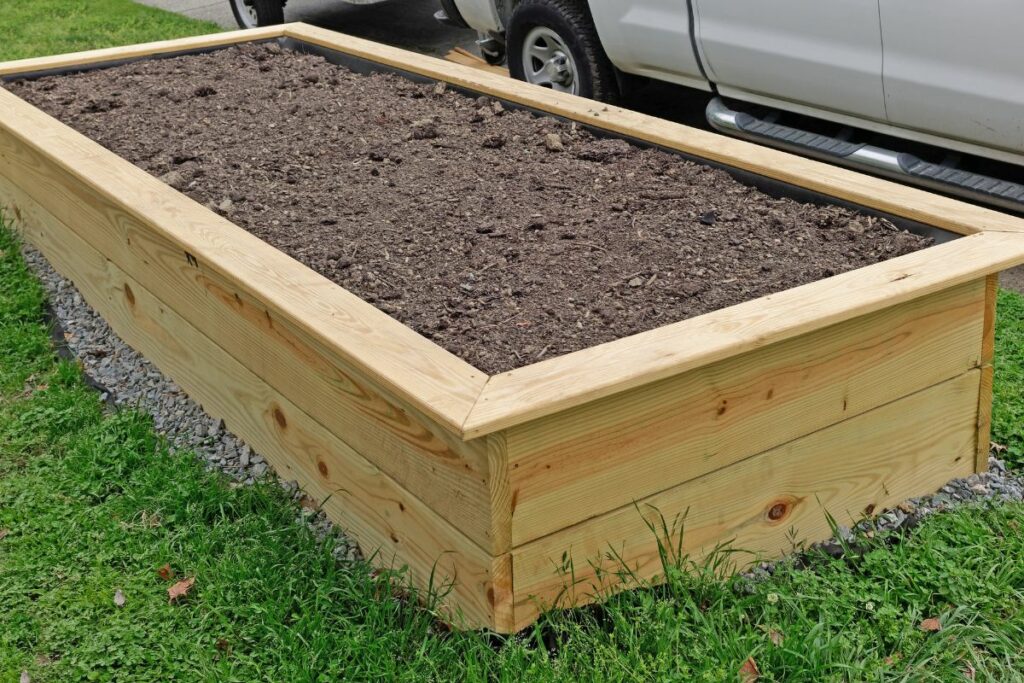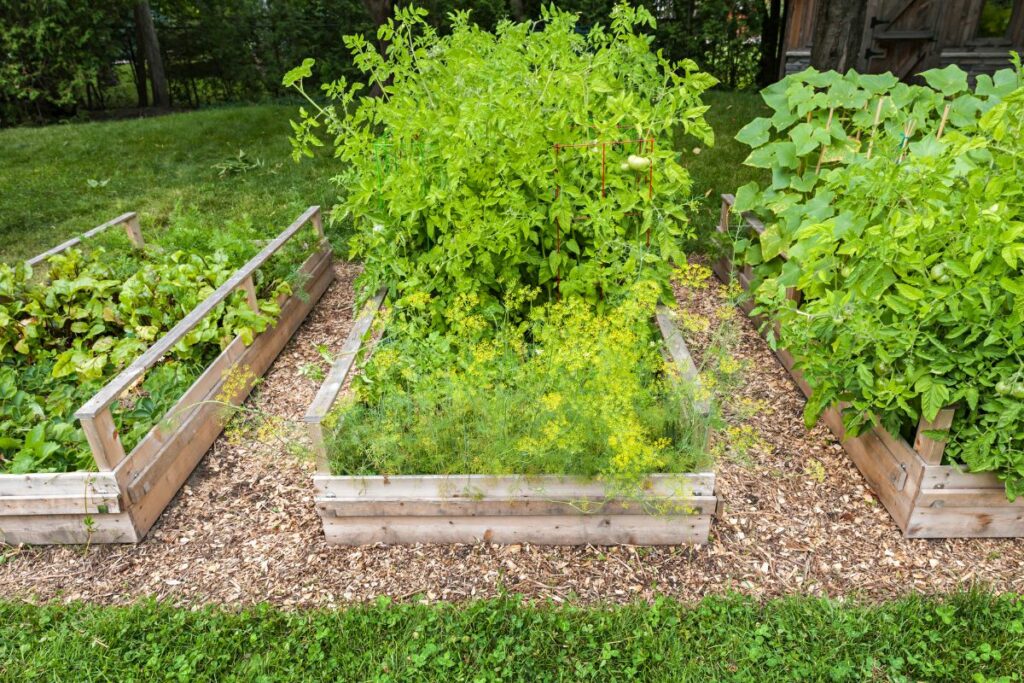Interested in raised bed gardening?
It’s a fantastic way to grow plants, but there are common pitfalls to avoid.
Discover the 9 mistakes many gardeners make and how to avoid them.
Ready to grow smarter?
Let’s get started!
1. Mistakes in Bed Placement

- Sunlight: Place your beds where they get enough light for your plant types.
- Growth: Incorrect positioning affects plant health and yields.
2. Unfit Bed Dimensions
- Limited Root Growth: Beds too compact lead to rapid dehydration, limiting root expansion.
- Accessibility Issues: Oversized beds hinder ease of access to the central area, making plant maintenance challenging.
3. Choosing the Wrong Soil

- Soil Composition: Opt for a specialized blend, combining soil, compost, and organic elements.
- Drainage and Nutrient Access: Ensures adequate water flow and nourishment.
4. Overlooking Soil Nourishment
- Soil Amendments: Essential for nutrient replenishment.
- Fertilization: Crucial to maintain plant vigor.
- Consequence: Without care, expect nutrient-starved soil leading to unhealthy plants.
5. Suboptimal Watering Techniques
- Raised Beds: Require more frequent watering than ground-level beds.
- Watering Routines: Essential to prevent both over-watering and drought conditions.
- Your strategy should avoid saturating roots or leaving them too dry.
6. Inadequate Plant Spacing

- Overcrowding: Impedes airflow and light.
- Consequences: Weaker plants; heightened disease risk.
7. Overlooking Crop Alternation
- Pest Control: Alternating crops prevents common infestations.
- Soil Health: Ensures balanced nutrient distribution.
8. Compromising on Construction Material Durability
- Select High-Quality Materials: Ensures extended use.
- Avoiding Low-Durability Options: Prevents quick wear.
- Non-Toxic Choices: Vital for safety and longevity.
9. Overlooking Regular Weeding
- Regular Checks: To maintain a healthy raised bed, perform routine surveillance for weeds.
- Proactive Approach: Proactively managing these intruders can stop them from taking hold.
- Gardening Success: By avoiding this pitfall, you spare yourself from unnecessary hassles, ensuring a more successful gardening experience.

